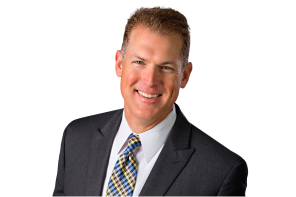I recall a portion of a lecture in my second year of medical school that I attended (yes, I attended them all) with uncanny clarity.
The lecture was on oncology by a physician from MD Andersen Cancer Center in Texas. While the cancer portion is hazy, the physician closed by stressing that we should always put our family ahead of our practice and our patients.
He assured us that at some point in our career, we would all hit a dark spot that would test us. Most likely it would be a malpractice case.
He said during these times, it would only be our faith, our family, and a small circle of friends that would help us through. It would not be our colleagues, our hospital, or the medical staff, as they would let us alone and avoid getting involved.
On October 1, 2015, my personal and professional life rapidly came unraveled.
I had just returned from our annual Partnership meeting completely energized. My shift began as any other at 6 a.m. At 10:30, I was feeling the effects of no breakfast and too much coffee when the EMS signal went off without the typical tones. I heard the voice of the EMS operator alerting us that there was a shooter at the local college. There were multiple dead, multiple wounded, and the shooter was still active.
In the ensuing seconds of shock, I realized that my 18-year-old daughter Olyvia was at UCC (Umpqua Community College). I texted and called her over and over with no answer. I feared she was dead or dying. I also knew I had to get ready for what was going to happen. We were going to be overrun with patients.
We readied as best we could. I met the first patient at the door — mostly to see if it was Olyvia. It was not until I was getting ready for my third patient some 40 minutes later that I finally received a text message from an unknown number that caused me to drop to my knees and cry.
In the ensuing hours, days, and months since that fateful day, I have reflected, thought, cried, struggled, and at times completely unraveled.
The following are 12 observations that I have collected:
- As a physician at a rural site, you have a higher chance of caring for your friends and family members when a disaster strikes. Hire not just partners but those you would want as your family's personal providers.
- My perception of my ability to handle such a situation on my own was absolutely false.
- I have become much more labile emotionally.
- I have appreciated (more than ever) that emotional pain has physical manifestations. Headaches, chest pain, nausea, muscle tension, insomnia, irritability, and inability to concentrate.
- I have had to reassess what is truly important in my life, and with help, create a new roadmap.
- I have a newfound appreciation for patients suffering with PTSD and the physical and mental issues that come with it. I am grateful that I have the resources, ability, and wherewithal to seek help, as I am confident that many of our homeless and other struggling patients are where they are in life because they have none of these.
- Everyone deals with tragedy, trauma, and loss differently. Every reaction, even to the same event, is unique. Each reaction deserves respect.
- Recovery is a journey. Some steps are longer than others. Some are more painful than others. Everyone is at a different space in the process.
- Our personal lives affect our work. Accept and acknowledge this. Be sympathetic and sensitive to this among fellow providers and teammates.
- Offering each other support in times of need means a lot and does not take much. A text, an email, a phone call (of which I received hundreds) means a lot — actually, much more than you know. A personal inquiry, a hug, an interested listener, or a shoulder to cry on is even more powerful. (Thanks to all of you who have offered these.)
- It does slowly get better. Seek professional help early and often. Self care techniques and methods that got us to this point in our careers likely won’t be enough.
- I can now add my Partners, Partnership, advanced providers, and Vituity, as well as my hospital administration, to the list of people one can count on in times of need.
I am getting closer to a point where I can think about the events of October 1 without welling up, with a goal of being able to talk about it, and maybe even helping others in the same situation. Long-term goals include being able to thank others in our community for their heroic efforts on that fateful day. We collectively saved lives, including my daughter's.
I applaud our Partnership for offering a resiliency program (that I thankfully participated in prior to 10/1), and I encourage everyone in our partnership to attend at some point.
What we do on a daily basis is rewarding, but does take a toll. We give our all on every patient and every shift. Career longevity is a foundation of our partnership structure, model, and philosophy.
"A good pilot (ED doctor) is compelled to always evaluate what's happened, so he can apply what he's learned. Up there, we got to push it." — Viper, Top Gun
I have often said: "We do what others can’t or won’t do, and we do it 24 hours a day, seven days a week, nights, weekends, and holidays."
13. You have to take care of yourself before you can take care of others. (I know, the title says 12 steps. So this one's a bonus.)
Last updated March 27, 2019.






















